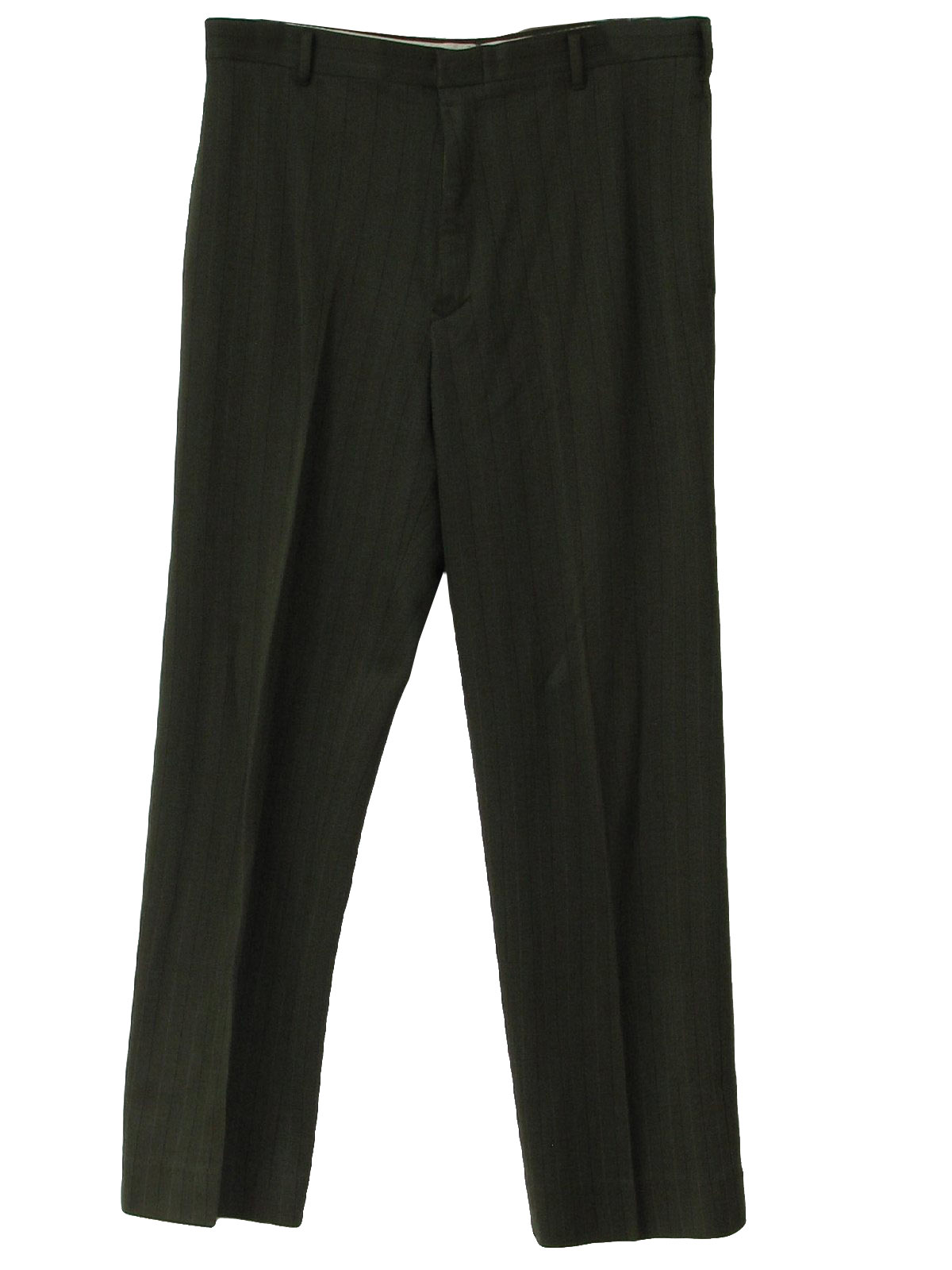
Winter is officially here. The cold weather means I have to
reluctantly give up my penchant for wearing shorts. I can deal with the high
forties to mid fifties weather going from office to car to home isn’t too
bracing in shorts. Any colder than that and some full coverage is a must. The
breezy arctic chill is too much for bare legs. I feel a bit like a hippie for
saying it but I just don’t like pants.
If I had to list the problems of pants I would start with
the weight. Too heavy and they hang off your butt, too light and they won’t keep
the cold out. I’m perpetually hiking them up, both to keep the cuffs from
dragging on the floor and to keep them waist level. Nothing is worse than
walking into a public bathroom with a semi-wet floor and worrying about how
much the cuffed bottoms are soaking up. Also my wallet and phone add extra
weight to already hefty trousers. I can only tighten my belt so far before the
stomach starts to pinch in the belt buckle. Want to witness an embarrassing spectacle?
Just wait for me to hoist that belt one extra hole down the strap and yelp when
the stomach flesh rolls up in the metal clasp.
Jeans are a bit of problem too. Because they’re denim they’re
rigid and unrelenting. Jeans have a position of their own. No two are alike. They
don’t flow and swoop the way polyester golf pants do. They’re more stiff than a
corpse and they bind on the thighs, never wielding. Jeans hate us. Oh sure they
last a long time. Wash after wash they hold their position. They mock our attempts
to control them with fabric softeners and hang dry efforts, useless. The slim
cut variety are even worse. Seriously, who needs a tighter fit?
Cargo pants are bulky and massive but necessarily so. They
aren’t stylish and they don’t care. Utility is their game. The extra space in
the pockets is perfect for tools and snacks, just in case you’re working
outdoors and need row of chocolate mini donuts. Pockets on cargo pants are like
seagulls at the beach; they’re interesting and even fun at first but quickly
become annoying. Most of us don’t need that much space. It just increases the
chance of losing more stuff in the washing machine, from gum and coins to cash
and toothpickers. For everyday use cargo pants are probably the worst option
unless you work construction.
Dress slacks are dignified and sharp but I don’t have enough
excuses to wear them. If you don’t normally wear slacks to work, try it someday
and see what people say. “You going to funeral or something?” or “What’s with
the dress up, you coming from church?” The chances to wear them are so seldom
you’ll realize when you finally do, they’ve shrunk. Pants are always shrinking.
One of life’s mysteries I guess. Also, dress pants fit great while standing but
sitting is a nightmarish surprise. They suck up tight and expose your
white/sock black/shoe combo if you aren’t careful. Standing quickly back up
doesn’t help either. You’ll have to massage the legs portions back down into
standing position because they won’t fall gracefully back into place. You can
use the kick method, where you kick your feet out to get the legs to slide back
down but it will look silly. Movement is a bit restricted while wearing them
because if the cloth is old it might rip along the butt seam. This is definitely
worse than having everyone know you wore white socks to a formal event.
Sweatpants are a wonderful respite from a tough day. The
fleece moves around effortlessly never bunching or tearing. Plus if you spill
your drink on them the cotton fibers will soak it up better than a paper towel
or whole stack of napkins. Even floor spills are a cinch. Just get off your
recliner, put down your beer and sit directly on the puddle. The fleece will
suck up the liquid like a shop vac. Don’t put them on too early in the day
though. You might have to go out and get some milk or lottery tickets. Very few
sweats are good enough to wear at Target. Not that Target is high class, but you
don’t want to be accused of someone begging for loose change and have the
employees throw you out. Especially with the stains and wet spots on your pants.
Wearing them out to go shopping is like
reminding people that you don’t care. Sweatpants say “Don’t mind me I am just
having a rough day” and “Could you spare a couple of bucks for gas?”
Golf pants certainly go in the most improved garment of
menswear. The ones I used to buy were cotton and bunched up with even the
slightest bit of movement. Now they’re light and wrinkle free. Most even have a
layer that prevents wrinkling. You can
wad them up in corner before tucking into bed and in the morning wear them
again without worrying about ironing out a mess. Also the textile geniuses have
figured out how to make them loose around the legs which is a huge improvement
for me. They aren’t too formal either, you wear them with your Pearl Jam
t-shirt and you’ll never regret being both ‘adultish’ and ‘hip’.
Until warmer weather I’ll just have to make do cycling
through my small wardrobe of khaki and black golf pants. I really do prefer
shorts.




